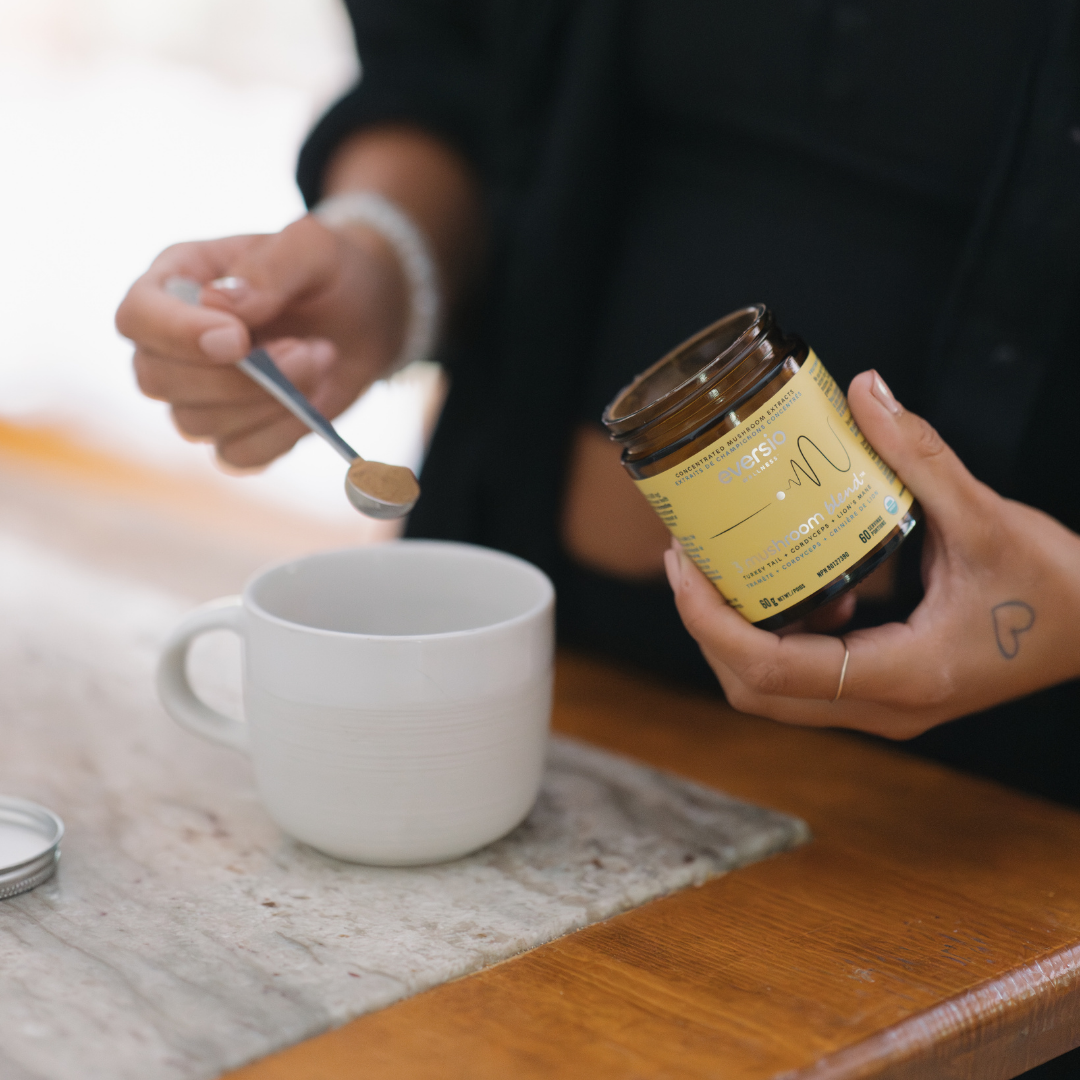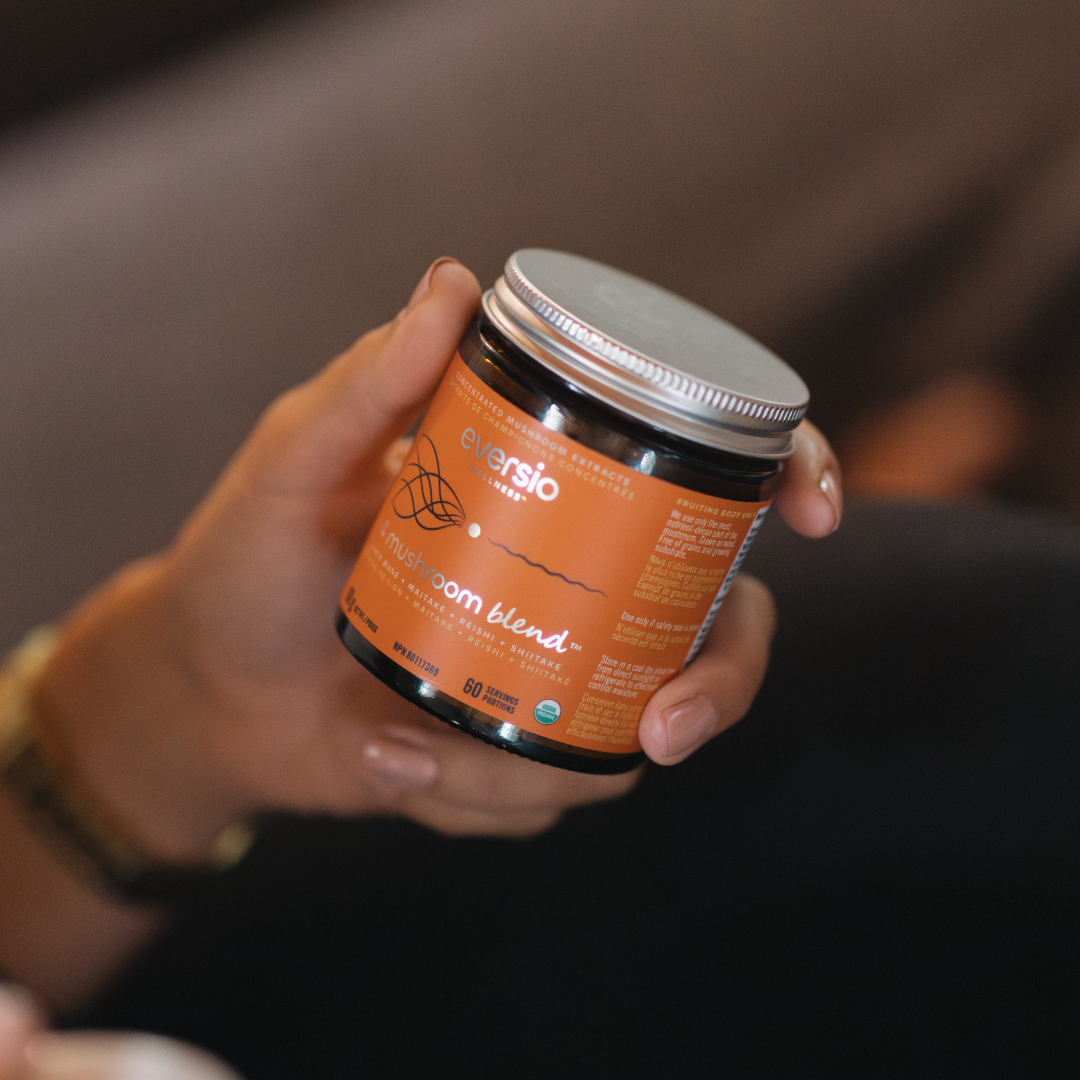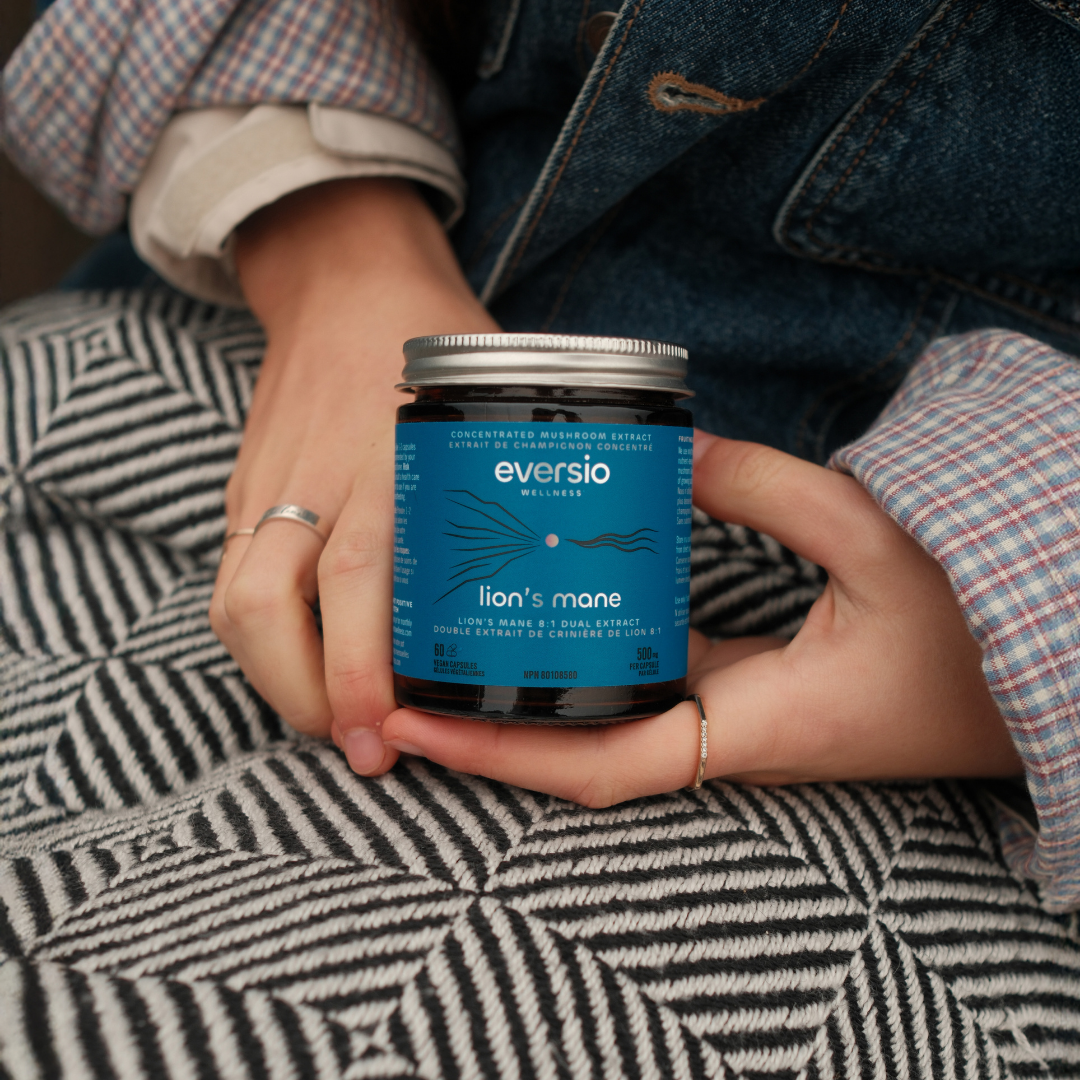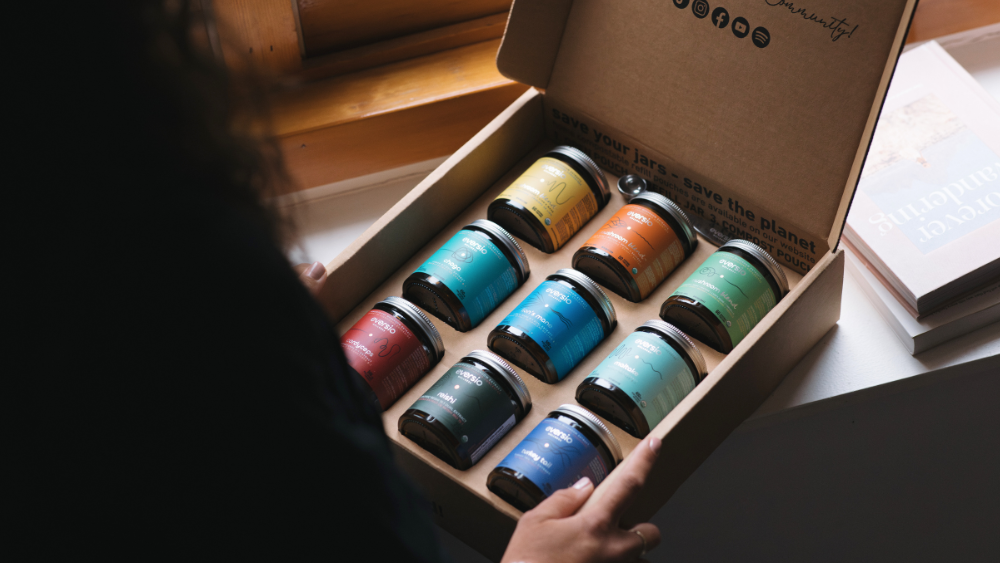Alcohol consumption is an everyday social activity for many people around the world. However, excessive alcohol consumption can cause severe damage to the liver over time. The liver plays a crucial role in processing alcohol and removing its toxic byproducts from the body.
When alcohol is consumed in excessive amounts, it can overwhelm the liver's ability to metabolize it. This may lead to inflammation, scarring, and even liver failure. It is no wonder many individuals look for alcohol alternatives or complete liver cleanses.
Fortunately, research has shown that certain functional mushrooms have the potential to support liver health and function, making them a natural and effective way to counteract some of the adverse effects of alcohol on the liver. In this article, we will explore the impact of alcohol on the liver and how mushrooms and alcohol may be the combination you need to support liver health.

What is the Main Function of your Liver?
The liver oversees many physiological processes and is one of the most vital organs in the human body [1]. Its primary role is to filter and process toxins, including alcohol and drugs, from the bloodstream before they can harm other organs or tissues [1]. The liver also stores glycogen, a form of glucose that the body uses for energy and helps regulate blood sugar levels [1].
The liver plays a critical role in the metabolism of proteins, fats, and carbohydrates and in the production of blood-clotting factors and other essential proteins [1]. The liver performs many vital functions necessary for maintaining good health and well-being.
How Does Alcohol Affect Your Liver?
When alcohol is introduced into the bloodstream, it first enters the portal vein that drains directly into the liver, exposing the liver to the greatest concentration of alcohol [2]. The liver eliminates most alcohol while the remainder is excreted through urine, sweat, or breath [2].
Alcohol is primarily metabolized in the liver by the enzyme alcohol dehydrogenase to form acetaldehyde and then acetate [2]. The acetate is then converted to water and carbon dioxide before being excreted. The most significant contributor of this pathway to liver damage is the generation of acetaldehyde, a highly reactive protein [2].
Acetaldehyde has the potential to bind to lipids, proteins, and DNA to form immunogenic adducts, which can generate an adaptive immune response that leads to liver damage and inflammation [2]. Additionally, acetaldehyde can promote the synthesis of collagen I in hepatic stellate cells and stimulate the release of pro-inflammatory cytokines, which may lead to the development or progression of liver fibrosis [2].
In small quantities, the alcohol dehydrogenase pathway efficiently metabolizes alcohol, but chronic consumption may lead to functional impairments and liver damage. Additionally, with regular consumption, the antioxidant system of the liver becomes impaired, leading to oxidative stress and death or necrosis of liver cells [2].
Does Alcohol Cause Fatty Liver Disease?
Alcoholic liver disease often occurs in stages that progress with the level of severity. Beginning with fatty liver disease, the condition can progress to alcoholic hepatitis and eventually alcoholic cirrhosis, the most advanced and irreversible form [3].
With fatty liver disease due to alcohol consumption, fat accumulates in the liver parenchyma, which is the functional tissue of the organ [3]. Drinking a large amount of alcohol over a short period is enough to cause a build-up of fat cells in the liver. Often, it does not cause any symptoms and is reversible if cessation of alcohol consumption occurs. However, if the drinking continues, it can eventually lead to inflammation of liver cells and permanent liver damage [3].

How Do Functional Mushrooms Help with Your Liver After Drinking Alcohol?
Functional mushrooms contain compounds that may help support liver health and protect it from damage caused by alcohol consumption. When the liver becomes overloaded with toxins, it can become damaged, leading to various health problems. Alcohol consumption can exacerbate this damage, leading to inflammation and oxidative stress in the liver.
However, certain compounds found in functional mushrooms, such as triterpenes and polysaccharides, have been shown to have liver-protective effects and may help reduce the risk of liver damage caused by alcohol consumption. Incorporating functional mushrooms or mushroom supplements into a liver-supportive diet and other healthy lifestyle choices may help reduce the risk of alcohol-related liver damage and support overall liver health.
Which Functional Mushrooms Are Best for Your Liver?
Turkey Tail Mushrooms (Trametes versicolor)
Considering that alcohol use may deplete the antioxidant systems of the liver, it is essential to ensure adequate consumption of potent antioxidants through diet or supplementation. Turkey tail mushrooms are a rich source of antioxidants that can work to combat oxidative stress.
One study found that turkey tail contains many different phenolic and flavonoid compounds, both of which are antioxidants, substances that protect our cells from damage and inflammation that may occur due to oxidative stress [4].
Increased oxidative stress is implicated in various medical conditions, including liver disease. Turkey tail mushrooms can be enjoyed in capsular form and as turkey tail tea or coffee. While there may be concerns about turkey tail mushroom liver toxicity, it is often well-tolerated and even used to treat many cancers alongside chemotherapy.

Reishi Mushrooms (Ganoderma lucidum)
The mushroom most studied for its hepatoprotective effects is Ganoderma lucidum, commonly known as Reishi. In traditional Chinese medicine, it is known as the mushroom of immortality and has a history of being used for thousands of years to treat many ailments. The bioactive compounds most responsible for Reishi benefits on the liver are its polysaccharides and triterpenoids [5].
In research, Reishi has exhibited powerful antioxidant and radical scavenging activity [5]. As mentioned, acetaldehyde production during alcohol metabolism may lead to free radical formation by interacting with proteins and lipids. When free radicals overwhelm our systems and cause an imbalance with antioxidants, oxidative stress can ensue and lead to cellular damage. Our bodies need adequate antioxidant support to scavenge these compounds and maintain balance in the liver [6].
Reishi mushroom health benefits include its ability to modulate the phase 1 and 2 liver enzymes [5]. In one study, the mushroom extract inhibited the increase of serum ALT and liver triglycerides; high levels of ALT are associated with any form of liver damage [5]. Additionally, the extract prevented the decrease of essential liver antioxidants, SOD and GSH, and inhibited b-glucuronidase activity, another indicator of liver damage [5].
Overall, Reishi significantly improved markers of liver health, even decreasing levels of MDA, a specific marker of oxidative stress [5]. Much like Turkey Tail, Reishi can be consumed in its capsular form or as Reishi mushroom tea or mushroom coffee. Again, much like Turkey Tail, Reishi mushroom liver toxicity has been a concern of consumers, but if used as directed, it should be safe to use.
Oyster Mushrooms (Pleurotus species)
The Oyster mushroom contains an important constituent known as ergothioneine, an intracellular antioxidant [7]. The fruiting body of Oyster has high levels of ergothioneine, making the fruiting body extract a powerful force against the development of oxidative stress [7].
In an animal study concerning the effects of Oyster mushroom on CCI-induced liver damage in rats, Oyster was found to alleviate the damage and return enzyme levels to normal [8]. Before treatment with Oyster, the rats exhibited high levels of oxidative stress and decreased functioning of the liver’s antioxidant systems [8]. Oyster was able to significantly alleviate the hepatotoxicity experienced by the rats [8].

Chaga (Inonotus obliquus)
Inonotus obliquus, often called Chaga, is a mushroom known for its powerful antioxidant abilities. It has one of the planet's highest ORAC (Oxygen Radical Absorbance Capacity) values! ORAC informs us about the power of a substance to neutralize free radicals so that they do not overpower our antioxidant capabilities and cause oxidative stress. Chaga also has powerful anti-inflammatory effects due to its antioxidant capabilities and certain mushroom constituents.
These actions of Chaga lend to its hepatoprotective activities [9]. Administration of the mushroom extract inhibited rising ALT, AST, and LDH enzyme levels – all positively correlated with liver damage [9]. Much like Reishi, Chaga may also decrease MDA formation, a marker of oxidative stress, illustrating its powerful antioxidant abilities and the prevention of oxidative stress [9].
The Best Mushroom Drink to Detox Your Liver After Drinking Alcohol
While supporting your liver through diet, liver-cleansing foods, exercise, and healthy lifestyle habits is important, there are functional mushrooms that can assist you further in ensuring adequate liver health. Functional mushrooms contain various bioactive compounds that may help support liver health by reducing inflammation, protecting against oxidative stress, and improving antioxidant and liver function.
The 6 Mushroom Blend by Eversio Wellness combines Oyster, Chaga, Tremella, Lion’s Mane, Shiitake, and Maitake. It has potent antioxidant and anti-inflammatory properties that can support liver health and protect from the adverse effects of alcohol consumption. As a powder, it can easily be added to any drink or meal, making it the perfect addition to that morning hangover mushroom coffee.
The other blends offered by Eversio Wellness feature Reishi and Turkey Tail, so the choice of which product is best can be left up to you!
Where to Buy the Best Mushroom Supplements?
Although the market for functional mushrooms is broad, it is important to be mindful of what is inside the products you are buying. If you find the words “full spectrum,” “mycelial biomass,” or “extracellular compounds” on the label, this means the product is made with the substrate the mushrooms are grown on, adding filler into your product.
Full spectrum is often advertised as a beneficial aspect of the product by some companies. Still, you’d need to consume much more of it to achieve the same benefits as you would from a product containing 100% fruiting body.
As for mushrooms in Canada, Eversio Wellness carries 100% fruiting body mushroom extracts, and they consistently practice transparency to their consumers by sharing the COAs (Certificate of Analysis) of each product. The COAs reassure consumers that the percentage of compounds claimed to be in the products is scientifically confirmed through lab testing. Eversio Wellness also tests the heavy metal and microbial contents to ensure your mushroom product is safe. There is no better time than now to buy mushrooms online!
We hope you have found this article informative. If you have any questions or comments, please leave them in the comment section below!




















Leave a comment
All comments are moderated before being published.
This site is protected by hCaptcha and the hCaptcha Privacy Policy and Terms of Service apply.